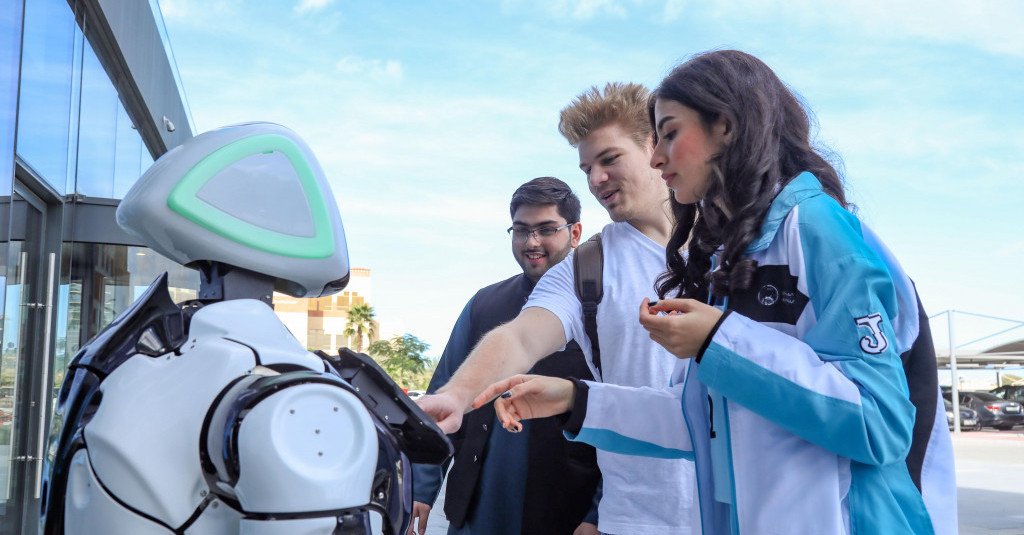Ajman University is stepping into the future by combining artificial intelligence (AI) with medical science. With its latest interdisciplinary project, the university is showing how new technologies can change lives and improve the way diseases are diagnosed and treated. This initiative brings together experts from different fields to create smart tools that help doctors make faster, more accurate decisions.
This project is not just about machines. It’s about people. The university’s goal is to improve patient care, reduce human error, and support doctors with advanced technology that works like a second brain. By using AI to read medical data, spot patterns, and make predictions, the university is making healthcare smarter, safer, and more efficient.
Breaking Boundaries: Medicine Meets Technology
Ajman University’s project is unique because it crosses the boundaries between departments. Engineers, doctors, data scientists, and computer programmers are all working together. This teamwork is one of the project’s strongest points. It allows each expert to bring their knowledge and ideas to the table, leading to better solutions.

The main focus of the project is on medical diagnostics and prognosis—finding out what disease a patient might have and predicting how it could develop. Using AI, the team is building systems that can analyze medical scans, lab results, and patient histories. These systems can then help doctors reach a conclusion faster than before.
For example, one of the tools being developed can analyze X-ray images and detect early signs of lung diseases. Another system looks at blood test results and uses AI to warn doctors about possible complications. These tools are designed not to replace doctors but to support them with reliable, data-based insights.

Why AI in Medicine Matters

Today’s doctors face a lot of pressure. They have to make quick decisions with large amounts of information. Sometimes, even the best professionals can miss something. That’s where AI can help.
Artificial intelligence can go through thousands of records in seconds. It doesn’t get tired or distracted. This makes it a perfect partner for healthcare professionals who want to be sure about their diagnosis.
Ajman University understands this. That’s why its AI systems are built to work side-by-side with humans. Doctors remain in control but get the added advantage of smart support. This partnership between man and machine could lead to better outcomes for patients.
Learning Beyond the Classroom
This project is also a great opportunity for students. Ajman University is involving its students in every step—from research to real-world testing. By doing so, the university is creating a new generation of healthcare leaders who are skilled in both medicine and technology.
Students get hands-on experience with the latest AI tools. They learn how to use software, analyze data, and even help build new applications. This type of training is rare and valuable. It gives young professionals the skills they need to succeed in the modern healthcare industry.
Moreover, students learn the importance of working across disciplines. They don’t just stay in their own field—they collaborate, communicate, and share knowledge. This approach helps create well-rounded professionals who are ready for the challenges of tomorrow.
Real Impact, Real Patients
While the project is still in progress, the early results are promising. In pilot tests, the AI-driven tools have already shown their ability to detect diseases faster and more accurately than traditional methods. For patients, this means shorter wait times, quicker treatments, and better care overall.
Ajman University is also working with local healthcare centers to test these tools in real clinics. This partnership helps the university see how the systems work outside the lab, where conditions can be unpredictable. It also ensures that the tools are designed with real-world needs in mind.
Doctors who have used the system say it helps them feel more confident in their decisions. Some have even reported that the AI suggested conditions they hadn’t considered, leading to better outcomes for their patients.
Looking Ahead: A Healthier Future
Ajman University is not stopping here. The team behind the project is already thinking about the next steps. They plan to expand the system to cover more diseases, such as heart problems and cancers. They are also exploring how AI can be used in early detection, which could save lives by finding health issues before they become serious.

In the future, this kind of technology could be available in clinics across the UAE and beyond. Even small hospitals could have access to world-class diagnostic support through AI. This would help ensure that every patient—no matter where they live—gets the best possible care.
The project also opens doors to global partnerships. By leading in this space, Ajman University puts itself on the map as a center of innovation and research in AI-powered medicine. Other universities, tech companies, and healthcare organizations are likely to take notice and collaborate.
A Model for Modern Education
What Ajman University is doing goes beyond technology. It’s a model for how education can serve society. By focusing on real-world problems, encouraging teamwork, and embracing innovation, the university is preparing its students not just for jobs, but for leadership.
The AI medical diagnostics project shows that great things happen when people from different backgrounds come together to solve a common problem. It’s a story of vision, creativity, and commitment to improving lives.
This is only the beginning. As the project grows and improves, Ajman University will continue to be a leader in smart healthcare solutions. It’s a sign that the future of medicine is here—and it’s powered by both people and technology.
Also read: UAE Homes Are Getting Smarter – Here’s What’s Driving It












